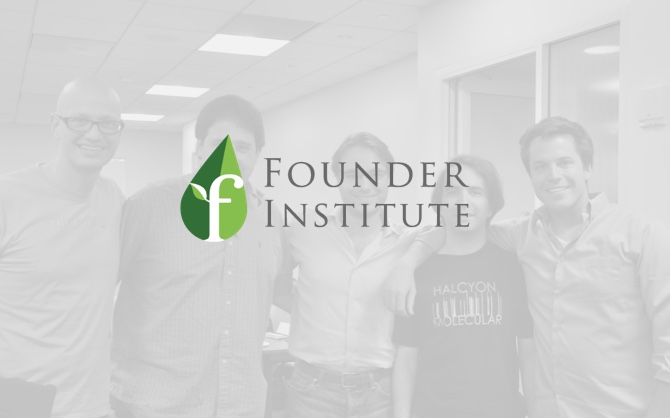
Startup ecosystems can be difficult to navigate for newcomers, which is detrimental for local startups and community growth. Understanding the resources available to you as a founder is one of the most productive activities possible, and will increase your chance of success. The Startup Ecosystem Canvas seeks to provide local entrepreneurs with a clear list of resources for every stage of their startup journey, and outline a basic framework for communities to map their ecosystem.
With applications for the San Diego Founder Institute now open, we are excited to release the updated San Diego Startup Ecosystem Canvas, which is currently in Draft v3. It's a crowdsourced list of the entrepreneur resources available in the San Diego area that was developed by the San Diego Founder Institute, and it's local leaders, Ben Cote, and Mike Sherbakov.
More input is needed, so please leave your comments on this collaborative Google document, and it will be considered for the next update.
Startup Stages
There is no one right way to build a technology company, but for the sake of simplicity we have outlined a basic, common, sequential framework.
1. Idea Stage
This is where new entrepreneurs get inspired, learn best practices, develop skills, validate ideas, and begin to build their team and product.
A. Inspire
- Startup Media: Centralized local information, listings, and news. (i.e. startup blogs/ publications/ lists/ FB groups/ newsletters)
- Inspirational Events: Open, inclusive, beginner startup events (i.e. Startup Weekend, idea fairs, and inspirational meetups)
B. Educate
- Best Practices: Beginner knowledge-sharing events. (i.e. beginner events that serve to educate more than inspirate)
- Training & Feedback: Skill & Idea development. (Ex. bootcamps and comprehensive training programs)
C. Validate
- Team Formation: Resources for teaming up. (i.e. events or other resources that facilitate early-stage recruitment and cofounder matching)
- Build First Product: Hackathons & resources to build. (i.e. hackathons and other builder-focused events and resources)
2. Launch Stage
In this stage, entrepreneurs establish and formalize the company, develop the product, get feedback from customers, and prepare for the next step.
A. Start
- Establish: Law firms & banks for startups
- Comerica Bank
- Dentons
- DLA Piper
- Fish & Richardson
- Foley & Lardner
- Kilpatrick Townsend & Stockton LLP
- Knobbe Martens Olson & Bear
- Latham & Watkins
- Mintz Levin
- Morrison & Foerster
- Pillsbury Winthrop Shaw Pittman
- Procopio
- Sheppard Mullin
- Silicon Valley Bank
- Square One Bank
- Stradling Yocca Carlson & Rauth
- WSGR
- Workspace: Co-working and flexible workspaces
B. Develop
- Formalize: Accounting, development and HR for early-stage startups.
- Prepare for Seed: Incubators and advanced mentorship. (i.e. advanced knowledge sharing, later stage events and resources for startup teams)
C. Launch
- Seed Accelerators: Seed funding mentor programs. (i.e. Techstars and similar programs that provide seed-funding)
- Pitch & Demo: Show local startups for investment (i.e. demo days for companies seeking seed investment)
3. Growth Stage
Here, a startup proves their utility, receives recognition, and scales up. This usually requires funding, angels, VCs, and ways to connect them to startups.
A. Recognition
- Investor Networking: Connect professional investors with founders. (i.e. events or groups that facilitate connections with professional investors)
-
The Deal Network
- Major Media: Mainstream local business press. (i.e. major local or regional publications that frequently champion local businesses)
B. Funding
- Angels / Micro-VCs: Seed-stage investors
- Venture Capitalists: Series A and beyond
- Analytics Ventures
- Avalon Ventures
- Bootstrap Incubation LLC
- Domain Associates
- Enterprise Partners Venture Capital
- Finistere Ventures
- Forrest Binkley and Brown
- Forward Ventures
- Gastronome Ventures
- Hamilton BioVentures
- Huntington Capital LLC
- JMI Equity
- Mission Ventures
- Proquest Investments
- Sanderling Ventures
- Shepherd Ventures
- Social Leverage
- Sorrento Ventures
- TVC Capital
- Windward Ventures
C. Growth
- Infrastructure: Office space, HR, insurance & more. (i.e. office space/ HR/ insurance providers for capital-rich companies to grow and scale)
- Expansion: Growth accelerators/consultants. (i.e. programs and business consultants for capital-rich companies to grow and scale)
4. Success Stories
Successful homegrown companies that have raised significant institutional funding, employ a large workforce, or have achieved liquidity.
The Supporters
To facilitate the steps, every ecosystem needs strong supporters.
1. Evangelists
Successful local founders who lead the ecosystem & frequently mentor newbies.
-
Alan Stewart
2. Government
Public organizations that facilitate local economic development
3. Talent
Major local business or tech universities and employers that attract and retain local talent.
- Local Universities (universities with prominent technical or business programs)
-
Local Employers (Major technical employers, like Microsoft or Google, with large local offices)
Learn more about the Startup Ecosystem Canvas here, and leave us your thoughts on the San Diego Canvas on this collaborative Google document (This is just a draft, and more input is needed)!




